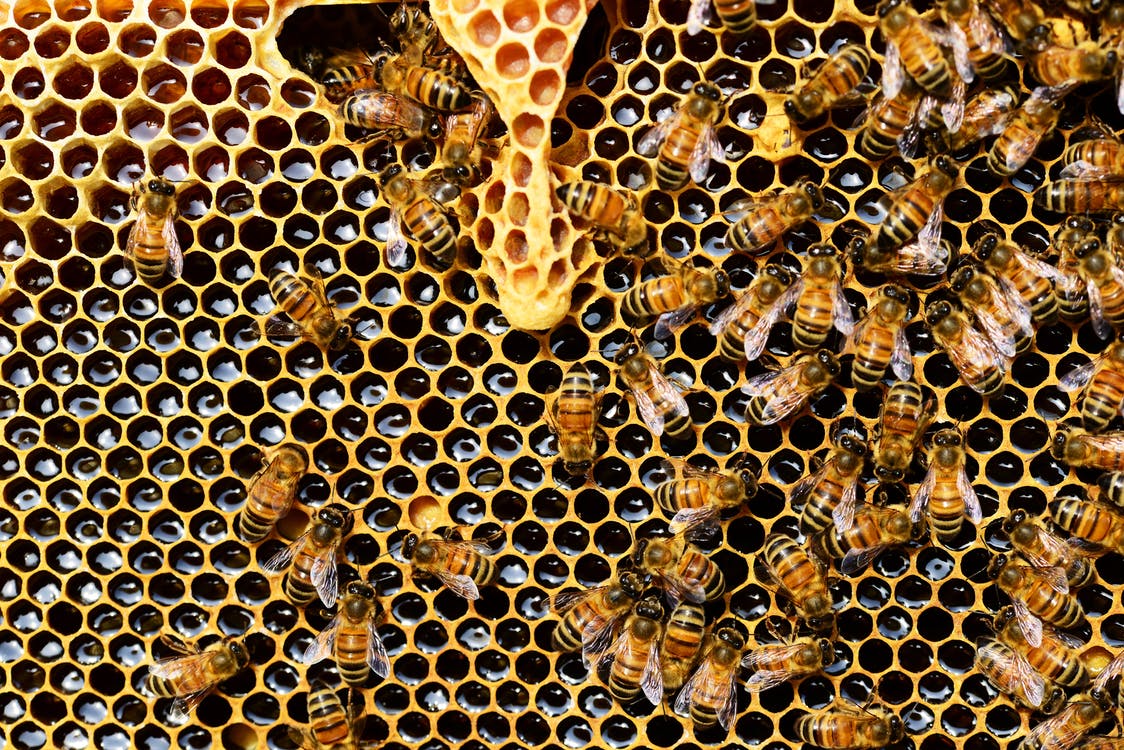If you’re interested in having a supply of fresh honey, wanting to eventually sell honey or you’re wanting to collect your own beeswax to make candles or other items, you may have thought about starting to beekeep.
Research
The first step is to study up. Start in the summer or fall and read everything you can. Look on Facebook or Nextdoor and find a local beekeeper group, ask people you know who keep bees. They say spring is the best time to start a new hive, so spend the other seasons collecting your gear and preparing for your hive. The first thing you want to study is all about honeybees. You want to know as much as humanly possible about the way honeybees work, how their bodies are made and what they do.
You do not want to even think about bee keeping until you’re well versed on bees themselves, it likely won’t work if you do not understand bees.
Supplies
After you learn about bees, start studying and watching everything you can about bee keeping. There are many great TikTokers who go into detail about their hives, including one who is always showing herself moving hives around and saving hives that are in bad locations.
Once you have learned all you could about bees and beehives, once spring rolls around, you will want to start gathering everything. You will want the supplies before you get your hive.
If you network in local or online groups, you may be able to find someone who will sell you a hive when you’re ready to start. They can also recommend the best supplies.
Get your supplies- you will need a full body suit, a smoker, storage for the hive, a veil to keep your face safe, a hive tool and uncapping tool and a brush. You can find these on Amazon for cheaper than in specialty stores and depending on where you live, you may need to shop online.
Once you get all the supplies, it’s time to get an actual hive with the bees. It is recommended to start with 1-3 hives. You could try more, but more hives would take more time and care and if you end up with your bees getting sick, you could deal with all hives getting sick.
While doing your research, learn the difference between honey bees and all other types of bees. You need to be able to identify any bees that could come along and pose a threat to your hive(s). You also need to be able to identify honey bees if you want to get bees from the wild instead of ordering. If you get them from the wild, make sure to get the queen so the worker bees will stay in the hive. There are clips you can get to keep the queen from escaping until they are more established in the hive.
You can go on Youtube and TikTok and search for beekeeping to learn everything you’ll need to know about what to do and where to go.
You will need to find a location far enough away from the house where you won’t be attacked, but also away from creeks and other bodies of water- that way the hive won’t be lost if the pond or creek flood over. Some people recommend to point the hive to the south, but there is nothing proven about bees preferring a certain location.
Some random tips
Make sure to include the queen, not everyone does but the queen helps hold the hive together and helps with reproduction.
Try to keep a place bees can go if they swarm. Swarming is done when hives get too full, so they will either take off or you can have another location so you won’t lose part of the hive.
Check on the bees at least once a week. You don’t need to check daily, but you do want to monitor at least every week. You want to be able to see if the bees get sick, are got by predators or end up with any parasites that could destroy the whole hive. You also want to make sure they’re safe and still there.
It’s best to use a frame but let the bees build the honeycomb. Frames are easily taken out and moved around, so they are better to use.
Bees become stressed easily, they can be harmed by being checked on too much so you do not want to check every day or excessively. Let the bees do what they need to do.
Enjoy- Beekeeping is a hobby. It’s meant to be enjoyed by people who love bees so don’t stress out over it and don’t fear it. A lot of honey bees are mellow when they aren’t feeling threatened.
What tips do you have for people interested in starting to bee keep?

3 responses to “Beginner Guide: Beekeeping”
What a nice article. Sharing this with a client that just got bees.
Thanks for educating on bee care! They’re so important to our lives and I’m glad to have some more knowledge about them!
Not going to lie – I’m a big baby when it comes to bees. However, I know how important they are! I appreciate learning more and a great, informative article. Thanks.